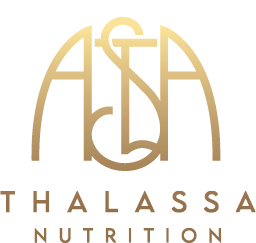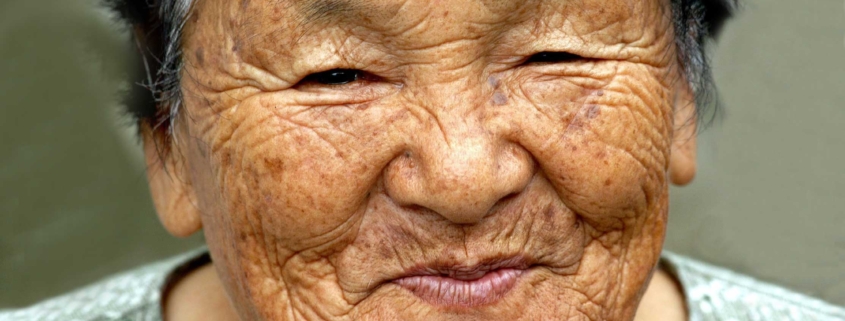Lessons from Okinawa, Japan
10 Secrets To A Happy & Healthy 100 Years Of Life: Lessons from Okinawa, Japan
The island of Okinawa in Japan, just north of Taiwan, has long been a hot spot for the secrets to longevity. It is unrivaled for its health, spirituality, and connection to mind and body. In fact, Okinawa has some of the highest number of centenarians (those who live past 100) in the world, at about 50 per 100,000 compared to 5-10 per 100,000 in the USA. These aren’t your average old folks, either. Here in the West, we associate old age with misery, joint pain, dementia, and nursing homes, but in Okinawa, the centenarians are happy and surprisingly independent.
Diseases like Parkinson’s, Alzheimer’s, autism, cancer, diabetes and heart disease are virtually unheard of, at least, not until you’re 90! Interestingly enough, when an Okinawan is removed from his or her society and rituals and adopts an American or Western lifestyle, their age limits begin to parallel those of the citizens of the United States. What exactly is their secret? Although genes do play a role, it seems lifestyle is the biggest contributor. In 2000, the Okinawa Centenarian Study published some fascinating facts on longevity:
1. Plant-based Diet
Okinawa is a beautiful tropical island (which helps anyone’s mood), but there is a bigger secret to their success. Because the plants are closer to the equator, where the sun’s damage may be greater, they protect themselves by producing higher amounts of phytochemicals and antioxidants to stay alive. These nutrients not only protect the plants from the sun’s rays, but from animal or insect consumption too. Those phytochemicals are what correct free radicals and eliminate inflammation from our bodies! Okinawans eat up to 10 servings of fruits and veggies a day — ALL ORGANIC!
2. Limited to No Animal Protein ( better no meat and no fish)
In Okinawa, the population follows a plant-based diet where they grow their own food. It is 80% plant based with the 20% reserved for fish and, occasionally, Meat if there is a special ceremony. It is also free of the antibiotics, hormones, and cruelty that exist in Western culture in factory farms.
3. High Flavanoids (estrogenic compounds from food) and Good Fats
They eat natural grains, root vegetables, sweet potatoes, leafy greens, and a ton of NON GMO fermented soy (90% is GMO in the USA). Examples like miso, flax, or tempeh are excellent for the liver and for menopause. Women experience menopause naturally with fewer complications. Another secret is bitter gourd or goya. As the name implies, this is a very bitter melon! It contains B vitamins, vitamin C, calcium, magnesium, zinc, phosphorus, iron, and beta carotene. It contains a phytonutrient called charantin and an insulin mimicking compound called polypeptide P that induces lower blood sugar and could be a remedy for diabetics.
4. Caloric Restriction
They practice a technique called Hara Hachi Bu, where they do not overeat. It translate to 8 parts out of 10, meaning they stop eating when they are 80% full. Caloric restriction has been a debatable topic but studies have shown that restriction, without malnutrition, can produce measurable benefits and potential longevity. For one thing, you will lose weight, and this is a good thing for most Americans. Caloric restriction also activates autophagy, which is the process by which older, dead cells are gobbled and cleaned up by other cells to keep the body running at tip top shape. If the body is inefficient at removing old debris, then this buildup can lead to neurodegenerative and cardiac diseases. Other studies point to “hormesis,” which means to induce benefit from low intensity biological stressors. This theory proposes that a calorie restricted diet excites the immune system and heightens the defensive state by inducing small amounts of stress, which lead to turning on longevity genes through science-based epigenetics (certain genes are turned off and on based on nutrition, environment, thoughts, etc)
5. Daily Exercise
They practice daily exercise that is not only beneficial for the body, but the mind too. You know how wonderful it feels to finish a challenging or relaxing yoga class? Imagine doing that every day in a slower paced, island environment. The majority practice Tai Chi, karate, gardening, dance, yoga, or martial arts, all of which are known to connect mind and body in a more spiritual process. Also, no one smokes! They also have little osteoporosis (no, they don’t drink a lot of milk, which does not stop osteoporosis) because they eat more plants which are chock full of calcium! They then activate vitamin D and overall bone health by spending time outdoors in the sun.
6. Positive Attitude
When polled, the Okinawans consistently scored higher in the ability to handle stressful situations as well as on their overall outlook on life. On the island they enjoy a slower paced life and close, supportive networks. Lab results reveal low levels of homocysteine, an inflammatory amino acid present in those with heart disease. Okinawans have an 80% lower risk of heart attack
7. Close Knit Community Groups
We are social beings who need love and support from friends and loved ones. Up to 80% of Okinawa’s elderly live alone independently or with a spouse, however they never give up their connection to community centers or elder day cares where they engage in games, sports, or exercise together. There is a name for these social groups and they are called moai groups. In Okinawa, growing old is looked at respectfully and the elders still help to run the community. There is always family visiting as life is slower paced. There are local festivals, gardening activities, and healing herbs brought to friends and dances for all to attend to continually heal the body and soul.
8. Find Tour “Ikigai”
Ikigai means “your purpose.” Retirement is a foreign concept in Okinawa. Their belief is that one should make life worth living no matter how old you are. You help others and continue to always look for a renewed mission.
9. Cultivate Spirituality
Spirituality, but not religion, is a major part of life in Okinawa. There are morning rituals, meditation groups, and a continued sense of belonging to a group that works collectively to achieve something bigger than them. They do not shy away from music or dancing as they believe this awakens the soul. The natives play Okinawan instruments like a traditional banjo and gather for community celebrations often. Women in Okinawa are noro (priestesses) or yuta (female shaman).
10. Eastern and Western Medical Approaches
Unlike the mindset in the West where there is a pill for every symptom and hard work to achieve health is often shunned, the Okinawans combine both aspects to achieve overall health. The employ shamanistic healing practices, spirituality, and some Western methods as well. They believe in the vitality and health of the people and their villages. Particularly, the older women play an active role as the religious leaders and spiritual shamans in the villages. Ancient herbs like the ones used in Ayurveda and traditional Chinese medicine are used in daily life. In fact, turmeric is consumed in large quantities (mostly in tea) and is revered for its antioxidant and detoxifying effects on the liver .We could all learn some lifestyle lessons from the wise and gentle people of Okinawa, Japan.
Sources:
1. Okinawan Centenarian Study 2000 — ww.okicent.org

 no
no no
no no
no